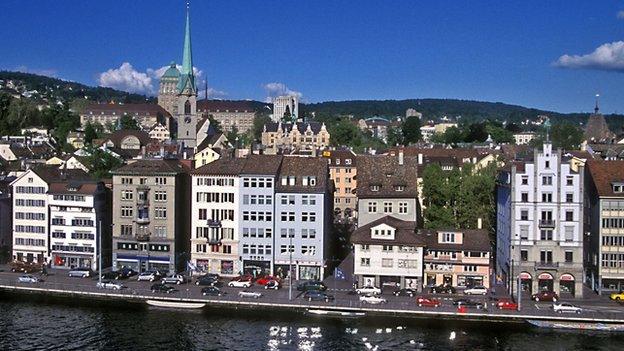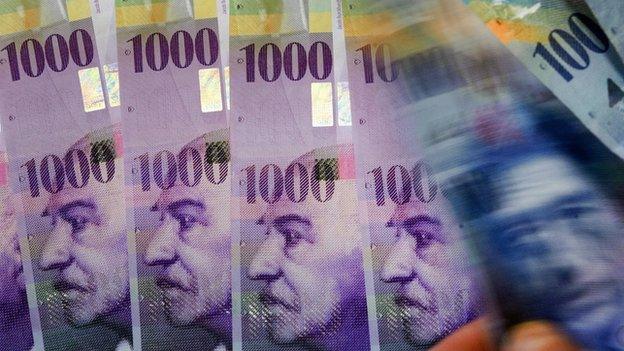Switzerland adopts Russia blacklist over Ukraine crisis
- Published

Zurich: Some powerful figures close to President Putin look set to be barred from visiting Switzerland
Switzerland is blacklisting dozens of influential Russians and pro-Russian separatists in line with EU sanctions.
The idea is to prevent those on the EU and US blacklists from circumventing sanctions by doing business in Switzerland instead.
The sanctions target Russians and separatists in eastern Ukraine accused of undermining Ukraine's sovereignty.
The Swiss are barring those listed from doing new deals with Swiss partners. But their assets will not be frozen.
The number of individuals targeted is now 87 - most of them linked directly to the conflict in Ukraine's Donetsk and Luhansk regions, the Swiss government says. Switzerland is also targeting 20 organisations.
The EU-US sanctions include some top officials and businessmen in President Vladimir Putin's entourage.
Switzerland is a popular destination for Russia's business elite and the country is in the Schengen passport-free zone, so the new selective EU travel restrictions will also apply to Switzerland.

Swiss banks now have many rich Russian clients
No back-door entry
However, Switzerland has avoided issuing its own sanctions list - so the Swiss measures are not quite as tough as the EU-US ones.
A member of the Swiss Federal Council (cabinet), Johann Schneider-Ammann, said: "Switzerland is adopting the EU measures but not one-by-one; the goal is to prevent any bypassing of the sanctions happening.
"The measures affecting an individual's freedom to travel apply directly in Switzerland, nevertheless, because Switzerland is a member of the Schengen zone," the Swiss Tagesanzeiger website quoted him as saying.
However, Swiss neutrality would be compromised if Switzerland were simply to copy the EU sanctions, he argued. Switzerland currently chairs the OSCE international security organisation, which is trying to mediate in the Ukraine conflict.